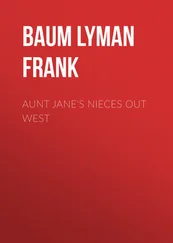Vivienne did not excel as a scholar in the competitive environment of the grammar school; she was socially rather than academically precocious. By the time she left the school in the summer of 1957, aged sixteen, she had only once visited an art gallery – in Manchester – dismissed the theatre as belonging to the past, and had read only storybooks and the set texts of her curriculum rather than ranging wider or deeper. Though she claimed to have been ‘intellectually curious’, she admitted to being unaware that what she called ‘the vast lake of knowledge’ existed, and never entertained the idea of going to university, which she associated with ‘the snobby lot … the boys all carried umbrellas, which we considered effeminate’. Her horizons were limited: ‘I just wanted to leave and earn my living. If someone had told me I could train to be a librarian, I would have thought, “Great!” But I didn’t know. How could I have been that stupid?’ Eileen Mellish remembered Vivienne observing that nursing or hairdressing were her only options – both Maureen Purcell and Anne Shaw pursued the latter career: ‘I think she wanted to do something different, but I don’t think she had any idea.’
In July 1957 Vivienne took a six-week holiday job at Pickering’s cannery with Maureen and Eileen. The factory’s female employees – dubbed the ‘pea pixies’ because of their green overalls and caps – worked from 7.30 in the morning until 5.30 in the evening. ‘It was horrendous because your hands got really sore with the juices,’ Vivienne remembered. ‘It was just money.’ At first the three girls were employed on the fruit-salad conveyor belt, but they soon irritated the regular staff by working faster than them and creating logjams. They were moved to the pea section, and Vivienne’s mother would get angry when her daughter came home with her clothes stained bright green.
Later that year Vivienne’s life changed dramatically. Her father was unemployed, and the family, at Dora’s instigation, moved to the more affluent South, her parents taking over another post office in Station Road, Harrow, in North-West London. ‘We had to move,’ says Dora. ‘there was no work.’ It was a great culture shock for Vivienne. In Cheshire, as Malcolm McLaren says, ‘she dominated her brother and sister, left and right, and was very much in control of her life. When she came to London she lost control. She thought they were not kind, easily accessible people and would cry, “I want to go back up North, I can’t stand it here.” It was tough on her.’ Her horizons were broadening, but she was finding it hard to cope.
The social status of Harrow’s residents was clearly defined by the position of their homes on the gradient that led up from Wealdstone, past Harrow town centre and on to the leafy heights of Harrow-on-the-Hill, where the well-heeled lived above the persistent urban smogs of 1950s London. Gordon and Dora’s sub-post office and small general store at 31 Station Road was virtually at the bottom of the hill.
Station Road was a main thoroughfare, flanked with terraces of three-bedroom Edwardian houses. Some of the ground floors had been converted into shops, including tobacconists, funeral parlours and bakeries. Number 31 was a modest but adequate home. The Swires lived above the shop in three bedrooms, a sitting room/diner, a kitchen and a small bathroom. After a year Gordon took over another post office and grocery business in nearby Stanmore, while Dora continued to run Station Road.
Vivienne, the bombastic sixteen-year-old schoolgirl from Glossop, was temporarily cowed by her new surroundings, and she felt insecure. She enrolled at the local grammar school but found it difficult to integrate, a fact that she put down to her broad Northern accent. After leaving school she attended a silversmithing and jewellery-making course at Harrow Art School, but she left abruptly after one term, took a secretarial course at Pitman’s and began to earn her own living as a typist for a local firm, having seen an advertisement on a tube train. Her favourite pastime was still dancing, and she attended many local dances. At one of them in late 1961 she met a young man called Derek John Westwood, two years her senior. Vivienne was instantly smitten by the handsome Westwood, who was confident, ardent and shared her love of rock ’n’ roll: ‘When I met Derek he was very lively and ever such a good dancer,’ she said later. His family lived on Belvedere Way in Kenton, the next suburb, and his father was a checker in a factory. Derek was working as a toolshop apprentice in the local Hoover factory, supplementing his wages with casual work as a manager at bingo halls and hotels. He longed, however, to be an airline pilot, and not long after meeting Vivienne he secured a job as a steward for British European Airways. His prospects looking up, Derek proposed marriage. Vivienne, who had left her typing job and was now working as a primary school teacher in Willesden, North London, accepted, although she later said: ‘I didn’t want to marry him actually, but he was such a sweet guy and I couldn’t give it up.’
Though the young couple planned to marry in a register office, Dora forcefully insisted that they have a white wedding, in a church. Vivienne made her own dress, which was not unusual in those days, and the wedding took place on 21 July 1962 at St John the Baptist, Greenhill, a large Edwardian stone church half a mile up the hill from the Swires’ home. The couple were married by Reverend J.R. Maxwell Johnstone, and honeymooned in North Devon. Vivienne and Derek moved into 86 Station Road, three hundred yards from the Swires’ sub-post office. On 3 September 1963 a son, Benjamin Arthur Westwood, was born at Edgware General Hospital in Hendon.
To contribute to the household expenses, Vivienne took a menial job chopping up rolls of print with a guillotine at the nearby Kodak factory (‘I was the fastest chopper in the factory,’ she later boasted). Despite Derek’s kindness and great love for his new wife, she was bored. She felt that her life was frustratingly circumscribed, and she watched with envy as her younger brother Gordon moved into a new and exciting circle at Harrow Art School. It was through him that she was to meet the man who would entice her away from working-class family conformity for ever.
Конец ознакомительного фрагмента.
Текст предоставлен ООО «ЛитРес».
Прочитайте эту книгу целиком, купив полную легальную версию на ЛитРес.
Безопасно оплатить книгу можно банковской картой Visa, MasterCard, Maestro, со счета мобильного телефона, с платежного терминала, в салоне МТС или Связной, через PayPal, WebMoney, Яндекс.Деньги, QIWI Кошелек, бонусными картами или другим удобным Вам способом.












